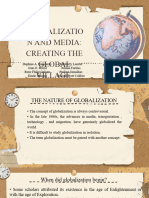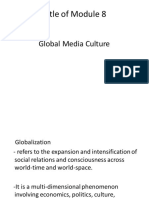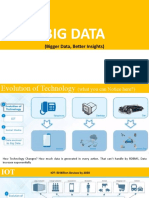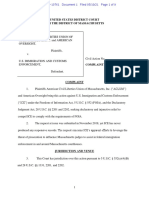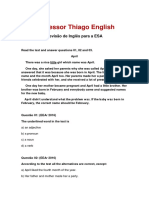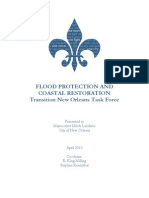0 ratings0% found this document useful (0 votes)
2 viewsGlobal Media Cultures-1
Global Media Cultures-1
Uploaded by
Jhim DutosmeSocsci
Copyright:
© All Rights Reserved
Available Formats
Download as PDF, TXT or read online from Scribd
Global Media Cultures-1
Global Media Cultures-1
Uploaded by
Jhim Dutosme0 ratings0% found this document useful (0 votes)
2 views24 pagesSocsci
Copyright
© © All Rights Reserved
Available Formats
PDF, TXT or read online from Scribd
Share this document
Did you find this document useful?
Is this content inappropriate?
Socsci
Copyright:
© All Rights Reserved
Available Formats
Download as PDF, TXT or read online from Scribd
Download as pdf or txt
0 ratings0% found this document useful (0 votes)
2 views24 pagesGlobal Media Cultures-1
Global Media Cultures-1
Uploaded by
Jhim DutosmeSocsci
Copyright:
© All Rights Reserved
Available Formats
Download as PDF, TXT or read online from Scribd
Download as pdf or txt
You are on page 1of 24
Global Media Cultures
SOCSCI032 – THE CONTEMPORARY WORLD
GLOBAL MEDIA CULTURE
• MEDIA
• The plural for medium – a means to convey something,
such as a channel of communication.
• This term came into popular usage because a word was
needed to talk about a new social issue.
• Though the word is relatively modern, humans have used
media of communication from their first days on earth,
and we will argue, those media have been essential to
globalization.
EVOLUTION OF MEDIA AND GLOBALIZATION
• Scholars have found it logical and helpful to organized
the history of study of media by time period or stages.
• Harold Innis (1950) divided media into three periods: oral,
print and electronic.
• James Lull (2000) added digital to those three.
• Terhi Rantanen (2005) places script before the printing
press and breaks down the electronic period into wired
and wireless, for six periods.
Oral Communication
• Speech is often the most overlooked medium in
histories of globalization. Yet, the oral medium – the
human speech – is the oldest and most enduring of all
media.
• How did the medium of language aid globalization?
Language allowed humans to cooperate. Sharing
information about tools and weapons led to the
spread of technology.
Oral Communication
• Language helped humans move, but it also
helped them settle down.
• Language stored and transmitted important agricultural
information across time as one generation passed on its
knowledge to the next, leading to the creation of villages
and towns
• Language also led to markets, trades of goods and
services, and eventually into cross-continental trade
routes.
Script
• Language was essential but imperfect. Distance
causes trouble for oral communication. Script –
the very first writing – allowed the humans to
communicate and share knowledge and ideas
over much larger spaces and across much longer
times.
• Writing has its own evolution and developed from cave paintings,
petroglyphs and hieroglyphs.
Script
• But script needed to be written on something.
Writing surfaces even have their own evolution.
• Writing was done at first as carvings into wood, clay,
bronze, bones, stone, and even tortoise shells.
• With scripts on sheets, humans had a medium that
catapulted globalization. Scripts allowed for the written
and permanent codification of economic, cultural,
religious, and political practice. These codes could then
be spread out over large distances and handed down
through time.
Printing Press
• It started the “information revolution” and
transformed markets, businesses, nations,
schools, churches, governments, armies and
more. All histories of media and globalization
acknowledge the consequential role of printing
press.
Printing Press
• Prior to the printing press, the production and
copying of written documents was slow,
cumbersome, and expensive.
• Reading and writing were practices of the ruling
and religious elite. The rich and powerful
controlled information.
Printing Press
• With the advent of the printing press, reading materials
suddenly was cheaply made and easily circulated. Millions
of books, pamphlets, and flyers were produced, reproduced,
and circulated.
• Literacy followed, and the literacy of common people was
revolutionized every aspect of life.
• Two overarching consequences:
1. Printing press change the very nature of knowledge
2. Print encourage the challenge of political and religious
authority because of its ability to circulate competing views.
Electronic Media
• Beginning of the 19th century, a host of new media
would revolutionize the ongoing processes of
globalization.
• Electronic media: because they require
electromagnetic energy (electricity) to use.
• Telegraph, telephone, radio, film, and television are
the usual media collected under electronic media.
Digital Media
• Digital media are most often electronic media that rely
on digital codes – the long arcane combinations of )s
and 1s that represent information.
• Many of our earlier media, such as phones and
televisions, can now be considered digital.
• The computer is the usual representation of digital
media. Computer comes as the latest, and most
significant medium to influence globalization.
NO GLOBALIZATION WITHOUT MEDIA
• The partnership of globalization and media is clear –
each eras saw marked influences of media on
globalization because humans have the impulse to
globalize and needs to communicate over distance to
proceed together through history, each driving and
influencing the other.
GLOBAL IMAGINARY AND GLOBAL VILLAGE
• Through media, the people of the world came to
know the world. That is, people needed to be able to
truly imagine the world – and imagine themselves
acting in the world – for globalization to proceed.
• The media are helping to bring about a fundamentally
new imaginary, what scholar Manfred Steger (2008)
has called a rising global imaginary – the globe itself
as a imagined community.
MEDIA AND ECONOMIC GLOBALIZATION
• The media have been essential to growth of economic
globalization in our world.
• Indeed, the media have made economic globalization
possible by creating the conditions for global
capitalism and by promoting the conceptual
foundation of the world’s market economy.
MEDIA AND ECONOMIC GLOBALIZATION
• The media foster the conditions for global capitalism.
• They fill our days with inivitations and exhortations for
consumption, from ceaseless commercials on radio and
television, to product placements in films, to digital
billboards, to pop-up ads, to broadsheets in bathroom
stalls.
MEDIA AND POLITCAL GLOBALIZATION
• Globalization has transformed world politics in
profound ways.
• It led to the formation and then the overthrow of
kingdoms and empires.
• It led to the creation of the nation-state. And now some
argued that nation-state is being weakened as people and
borders become ever more fluid in our globalizes world.
• Some argue that transnational political actors now rise in
prominence in our age of globalization.
MEDIA AND POLITCAL GLOBALIZATION
• Utmost importance, though media corporations
are themselves powerful political actors,
individual journalists are subject to brutal and
intense intimidation as more actors contend for
power. There has never been a more dangerous
time to work in media.
MEDIA AND POLITCAL GLOBALIZATION
• In the age of political globalization, the opposite
hypothesis appears to be true: governments
shape and manipulate the news.
• Officials around the world are extremely successful
at influencing and molding the news so that it
builds support for their domestic and foreign
policies.
MEDIA AND CULTURAL GLOBALIZATION
• The media, on one level, are the primary carriers
of culture.
• Through newspapers, magazines, movies,
advertisements, television, radio, the Internet
and other forms, the media produced and
display cultural products, from pop songs to top
films.
MEDIA AND CULTURAL GLOBALIZATION
• The media are people. These people are active
economic agents and aggressive political lobbyist on
matters of culture. They market brands aggressively.
They seek out new markets worldwide for their
cultural products. They actively bring about
interactions of culture for beauty, power and profit.
• Cultural Differentialism
• Cultural Convergence
DARK CONTOURS OF GLOBAL VILLAGE
• Globalization and media have done wondrous
deeds. They have succeeded in bringing the
world closer together.
• But do not get fooled: media technology used
not to better the world but to exploit the world
in pursuit of property, profit, and power.
DARK CONTOURS OF GLOBAL VILLAGE
• Globalization and media have built a village with
large tracts of economic injustice, political
repression, and cultural conflict. They have sewn
seeds of bitter and deadly discord between
nations, classes, political parties, ethnic groups,
religions, and neighbors. They pit humans
against nature. They have despoiled the very
globe they encircle.
End of Topic.
Thank You!
You might also like
- Cworld Module7Document2 pagesCworld Module7Princess FloraNo ratings yet
- Evolution of Media and Globalization 5 Periods of MediaDocument5 pagesEvolution of Media and Globalization 5 Periods of Mediaroxanne hufanaNo ratings yet
- Global Media CulturesDocument14 pagesGlobal Media CulturesElizabeth Hernandez55% (11)
- Globalization and MediaDocument44 pagesGlobalization and MediaKristine DominiqueNo ratings yet
- Globalization and Media CultureDocument38 pagesGlobalization and Media CultureJerelyn Baya69% (32)
- Employment Contract ProbationaryDocument2 pagesEmployment Contract Probationarygina100% (3)
- Globalization and Media: Creating The Global VillageDocument42 pagesGlobalization and Media: Creating The Global VillageKristine JoyNo ratings yet
- Globalization and Media Creating The Gobal Village - 20240409 - 130940 - 0000Document24 pagesGlobalization and Media Creating The Gobal Village - 20240409 - 130940 - 0000Renz GahumNo ratings yet
- Globalization and MediaDocument24 pagesGlobalization and MediaCyka Blyat0% (2)
- Cultural GlobalizationDocument18 pagesCultural GlobalizationCharlene Eusebio Calunsag LlapitanNo ratings yet
- Cultural Globalization - MediaDocument19 pagesCultural Globalization - MediaSalus Hernando TiedraNo ratings yet
- Global Media CultureDocument17 pagesGlobal Media CultureMaria Angelica Piano-Ruiz DariaNo ratings yet
- Globalization ReportDocument31 pagesGlobalization ReportLea Rose Pacis ValeNo ratings yet
- Media and GlobalizationDocument45 pagesMedia and GlobalizationRegine Mae Garion50% (2)
- 7globalization and MediaDocument39 pages7globalization and MediaJiecel IngenteNo ratings yet
- The Contemporar y World: Global Media CulturesDocument16 pagesThe Contemporar y World: Global Media CulturesmarisNo ratings yet
- Globalization and MediaDocument20 pagesGlobalization and MediaPatrick Jeremel100% (2)
- L6 - Global Media CulturesDocument7 pagesL6 - Global Media Culturese2818502No ratings yet
- Group D Globalization and MediaDocument36 pagesGroup D Globalization and MediaAlyssa Marie PepitoNo ratings yet
- The Evolution of Media: From Traditional To New Media: Amor Jude Thadeusf. SorianoDocument33 pagesThe Evolution of Media: From Traditional To New Media: Amor Jude Thadeusf. SorianoNijen Lei SelorioNo ratings yet
- Contemporary Week 7 FinalDocument10 pagesContemporary Week 7 FinalMary Joy BorjaNo ratings yet
- Global Media CultureGE3Document24 pagesGlobal Media CultureGE3heartferfas86No ratings yet
- Lecture MidtermsDocument19 pagesLecture MidtermsJAEZAR PHILIP GRAGASINNo ratings yet
- Global Media CultureDocument14 pagesGlobal Media CulturepobocanangelmaeNo ratings yet
- C8 Globalization and MediaDocument20 pagesC8 Globalization and MediaAndrei PalentinosNo ratings yet
- C8 Globalization and MediaDocument20 pagesC8 Globalization and MediaAndrew Gaa100% (1)
- Global Media CultureDocument42 pagesGlobal Media CultureJANMATTHEW PAPANo ratings yet
- TCW - Global Culture MediaDocument15 pagesTCW - Global Culture Mediasheilamaepadura01No ratings yet
- M5. A World of IdeasDocument64 pagesM5. A World of IdeascapoyljtNo ratings yet
- 12globalization Media CultureDocument16 pages12globalization Media CultureJoshua Lee VitoNo ratings yet
- Lesson 6 - Global Media and ReligionDocument90 pagesLesson 6 - Global Media and ReligionSandeepNo ratings yet
- Global Media CulturesDocument31 pagesGlobal Media CulturesKenneth VillaruzNo ratings yet
- Cworld1 Module Part BDocument106 pagesCworld1 Module Part Bhitmna123No ratings yet
- Global Media CultureDocument29 pagesGlobal Media CultureJhayzerie Mendoza Tabaldo100% (1)
- Globalization and Media: Unit 6Document29 pagesGlobalization and Media: Unit 6Jen EspinaNo ratings yet
- Harlow SlidesManiaDocument18 pagesHarlow SlidesManiaJoana Dela CruzNo ratings yet
- 4.3.1 Lesson. Globalization and MediaDocument25 pages4.3.1 Lesson. Globalization and MediaZAIL JEFF ALDEA DALENo ratings yet
- Group 3 Global Media CultureDocument4 pagesGroup 3 Global Media CultureEricka ElloNo ratings yet
- CULTURAL-GLOBALIZATIONDocument8 pagesCULTURAL-GLOBALIZATIONeuriboi02No ratings yet
- Cworld1 Lesson 8Document10 pagesCworld1 Lesson 8Kimberly De Vicente TandocNo ratings yet
- M3 Global Media CulturesDocument22 pagesM3 Global Media Cultureselvine escobarNo ratings yet
- Report SocsiDocument12 pagesReport SocsiPre Loved OlshoppeNo ratings yet
- CW L9.MediaDocument41 pagesCW L9.MediaMayengNo ratings yet
- Globalization and MediaDocument17 pagesGlobalization and MediaBernadette PalermoNo ratings yet
- 5.WORLD OF iDEASDocument24 pages5.WORLD OF iDEASAdelfa Joyce PagoboNo ratings yet
- The Contempo World 1.12Document18 pagesThe Contempo World 1.12Mae Cedenio - DatoonNo ratings yet
- GROUP C - Globalization and MediaDocument76 pagesGROUP C - Globalization and MediacabilanbonjekoNo ratings yet
- CNTEMPDocument28 pagesCNTEMPJoyce M.No ratings yet
- Notes 1st TopicDocument5 pagesNotes 1st Topicdejoyamaryjane23No ratings yet
- Group 3 Global Media CultureDocument9 pagesGroup 3 Global Media Culturecastromelodyjane2324No ratings yet
- Unit Viii. Global Media Culture: at The End of The Unit, I Am Able ToDocument4 pagesUnit Viii. Global Media Culture: at The End of The Unit, I Am Able ToBeverly DatuNo ratings yet
- Orca Share Media1572918897437Document9 pagesOrca Share Media1572918897437Ge Ann BesoniaNo ratings yet
- Media and GlobalizationDocument14 pagesMedia and Globalizationmelody nagalesNo ratings yet
- 8 Global Media Culture Mass MediaDocument30 pages8 Global Media Culture Mass MediaJohn Icon Dela CruzNo ratings yet
- Globalization and Media CultureDocument19 pagesGlobalization and Media CultureJomari GavinoNo ratings yet
- MC Lesson 1 Communication and GlobalizationDocument31 pagesMC Lesson 1 Communication and GlobalizationelsidNo ratings yet
- Global Media Culture: The Contemporary WorldDocument33 pagesGlobal Media Culture: The Contemporary WorldSamuel J. PabloNo ratings yet
- Media and Information Literacy Lesson 2Document30 pagesMedia and Information Literacy Lesson 2Yenny NeyiaNo ratings yet
- WEEK9LESSONTCWDocument8 pagesWEEK9LESSONTCWEmily Despabiladeras Dulpina100% (1)
- Vi. Global Media CultureDocument25 pagesVi. Global Media CultureRubielyn JimenezNo ratings yet
- The New Media Nation: Indigenous Peoples and Global CommunicationFrom EverandThe New Media Nation: Indigenous Peoples and Global CommunicationNo ratings yet
- Comm 2AB3 - Course Syllabus-Winter 2021 (Updated Dec 31)Document8 pagesComm 2AB3 - Course Syllabus-Winter 2021 (Updated Dec 31)Alyssa PerzyloNo ratings yet
- Chapter 5: Intercompany Profit Transactions - InventoriesDocument38 pagesChapter 5: Intercompany Profit Transactions - InventoriesRizki BayuNo ratings yet
- G.R. No. 202206 DrugsDocument15 pagesG.R. No. 202206 DrugsLarssen IbarraNo ratings yet
- GB PDFDocument359 pagesGB PDFUlaganathanNo ratings yet
- AS 1101.3 - 1987 Graphical Symbols For Engineering - WeldingDocument44 pagesAS 1101.3 - 1987 Graphical Symbols For Engineering - WeldingRobart JacobNo ratings yet
- 7 P's of ICICI BANKDocument13 pages7 P's of ICICI BANKSumit VishwakarmaNo ratings yet
- Psychologist Job, Jaffarabad, International Rescue Committee - ROZEE - PKDocument4 pagesPsychologist Job, Jaffarabad, International Rescue Committee - ROZEE - PKIhtesham GulNo ratings yet
- The Settlement Performance of Stone Column Foundations: S C S VC VsDocument14 pagesThe Settlement Performance of Stone Column Foundations: S C S VC VsJuan Camilo PinedaNo ratings yet
- FDA Object EvidenceDocument3 pagesFDA Object Evidenceaurea belenNo ratings yet
- Metro Transit vs. PiglasDocument5 pagesMetro Transit vs. Piglasvanessa_3No ratings yet
- BSNL Tariff UP EastDocument2 pagesBSNL Tariff UP EastshishirNo ratings yet
- Big DataDocument82 pagesBig DataAman Singh100% (1)
- Practice 9 - ECON1010Document13 pagesPractice 9 - ECON1010sonNo ratings yet
- Erp SynopsisDocument2 pagesErp SynopsisShruti MittalNo ratings yet
- American Civil Liberties Union of Massachusetts and American Oversight V Ice Prosecution of Massachusetts Judge Joseph and Court Officer MacgregorDocument9 pagesAmerican Civil Liberties Union of Massachusetts and American Oversight V Ice Prosecution of Massachusetts Judge Joseph and Court Officer MacgregorLaw&CrimeNo ratings yet
- Indian News Agencies at A GlanceDocument3 pagesIndian News Agencies at A GlanceNetijyata MahendruNo ratings yet
- Sahina CVDocument2 pagesSahina CVMohamed NasifNo ratings yet
- (En) BGF 2024 - 2025 - Explanatory NoteDocument9 pages(En) BGF 2024 - 2025 - Explanatory NoteCHANN SOCHEATANo ratings yet
- 6c6c PDFDocument1 page6c6c PDFshaziba noorNo ratings yet
- OBV BloodGoodDocument4 pagesOBV BloodGoodOnur ARIKNo ratings yet
- 9th Animal Farm Study GuideDocument6 pages9th Animal Farm Study GuideEC Pisano Riggio100% (1)
- FMNHS School Disaster Management and Contingency Plan (SY 2020-2021)Document4 pagesFMNHS School Disaster Management and Contingency Plan (SY 2020-2021)Arnold Herrera EspineliNo ratings yet
- Cat Hybrid Energy Solutions V3A Summary 202009Document77 pagesCat Hybrid Energy Solutions V3A Summary 202009Chris StillNo ratings yet
- Ielts Reading Actual Test by Ielts SupportDocument235 pagesIelts Reading Actual Test by Ielts SupportDũng HoàngNo ratings yet
- Revisao de Ingles para A Esa PDFDocument9 pagesRevisao de Ingles para A Esa PDFMarcilio LopesNo ratings yet
- Flood Protection and Coastal Restoration Transition New Orleans Task ForceDocument16 pagesFlood Protection and Coastal Restoration Transition New Orleans Task Forceapi-25924194No ratings yet
- United States v. Reggie Leroy, United States of America v. Darren Harris, 984 F.2d 1095, 10th Cir. (1993)Document7 pagesUnited States v. Reggie Leroy, United States of America v. Darren Harris, 984 F.2d 1095, 10th Cir. (1993)Scribd Government DocsNo ratings yet
- The Girl On The Train - ExcerptDocument6 pagesThe Girl On The Train - ExcerptilsabrinkNo ratings yet
- The Solicitor General For Plaintiff-Appellee. Donato V. Pasiliao For Accused-AppellantDocument8 pagesThe Solicitor General For Plaintiff-Appellee. Donato V. Pasiliao For Accused-AppellantKaiNo ratings yet







